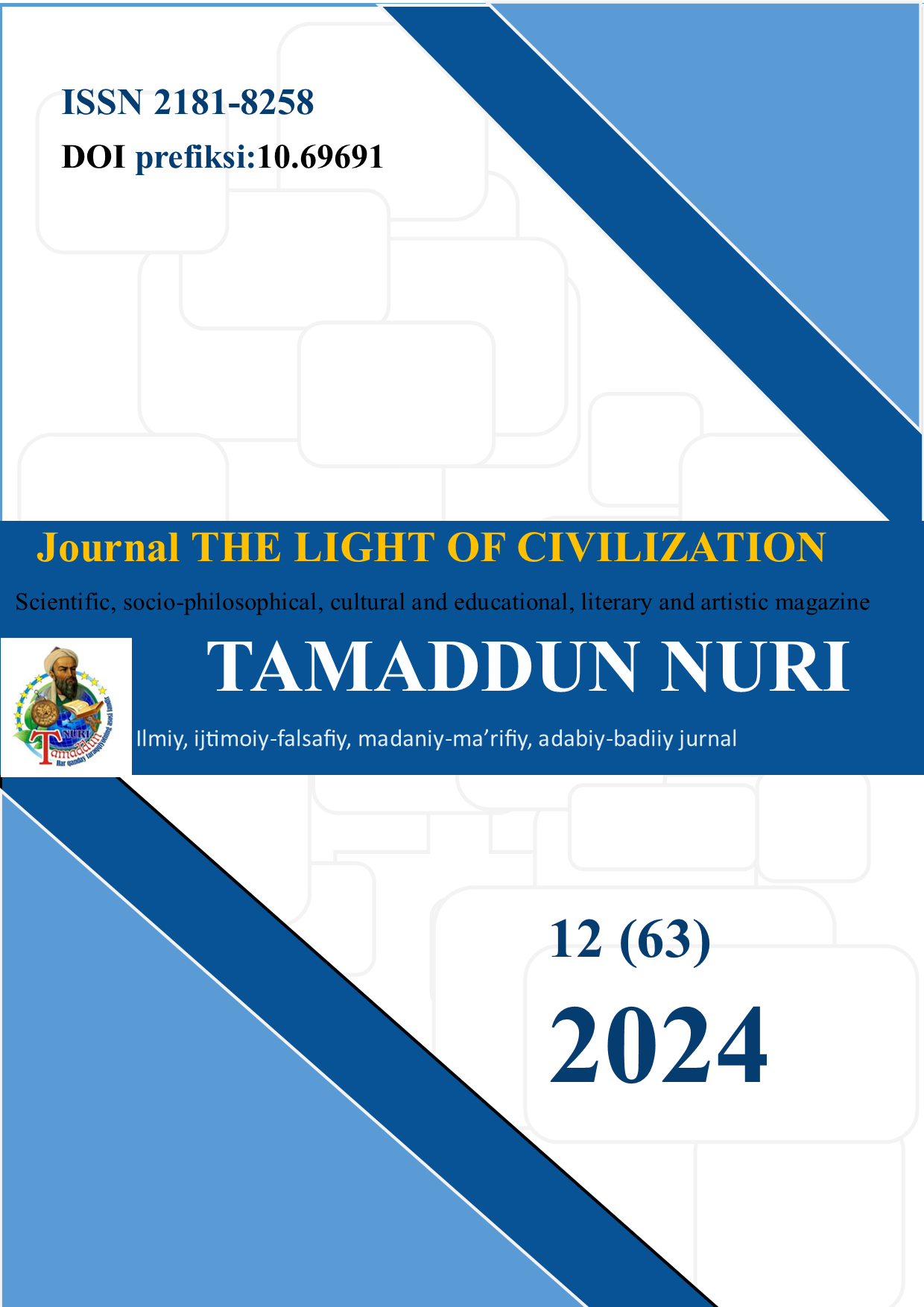THE INTEGRATION OF ARTIFICIAL INTELLIGENCE (AI) INTO EDUCATION SYSTEM
DOI:
https://doi.org/10.69691/r1bx4f56Keywords:
artificial intelligence, education, school management, teachers, methods, language learning.Abstract
As research on artificial intelligence (AI) in education continues to expand, many scholars predict significant changes in the roles of teachers, schools, and educational leaders. This study seeks to examine potential outcomes of integrating AI into education and its implications for the future of educational institutions. Using a phenomenological approach, a qualitative research method, the study explores the perspectives of individuals from diverse sectors. The findings indicate that AI's introduction in education will bring innovative tools and advantages for schools and teachers, while also presenting certain challenges.
References
Akgun, S., Greenhow, C. (2022). artificial intelligence in education: addressing ethical challenges in K-12 settings. AI Ethics, 2, 431–440. https://doi.org/10.1007/s43681-021-00096-7
Aleven, V., McLaughlin, E. a., Glenn, R. a., & Koedinger, K. R. (2016). Instruction based on adaptive learning technologies. In Mayer, R.E. & alexander, P.a., Handbook of research on learning and instruction, 522-560. ISBN: 113883176X
Baker, R.S., Esbenshade, L., Vitale, J., & Karumbaiah, S. (2022). Using demographic data as predictor variables: a questionable choice. https://doi.org/10.35542/osf.io/y4wvj
Black, P. & Wiliam, D. (1998). Inside the black box: Raising standards through classroom assessment. Phi Delta Kappan, 92(1), 81-90. https://kappanonline.org/inside-the-blackbox-raising-standards-through-classroom-assessment/
Black, P., & Wiliam, D. (2009). Developing the theory of formative assessment. Educational assessment, Evaluation and accountability, 21(1), 5-31. https://doi.org/10.1007/s11092-008-9068-5
Boden, M.a. (2018). artificial intelligence: a very short introduction. oxford. ISBN: 978-0199602919
Bozorboyev N. Y "Abdulla Oripov she'rlarida hissiy kechinmalar" “INTERNATIONAL CONFERENCE DEDICATED TO THE ROLE AND IMPORTANCE OF INNOVATIVE EDUCATION IN THE 21ST CENTURY 2022/2” openidea.uz
Bryant, J., Heitz,C., Sanghvi, S., & Wagle, D. (2020, January 14). How artificial intelligence will impact K-12 teachers. McKinsey. https://www.mckinsey.com/industries/education/ourinsights/how-artificial-intelligence-will-impact-k-12-teachers
Celik, I., Dindar, M., Muukkonen, H. & Järvelä, S. (2022). The promises and challenges of artificial intelligence for teachers: a systematic review of research. TechTrends, 66, 616–630. https://doi.org/10.1007/s11528-022-00715-y
Center for Integrative Research in Computing and Learning Sciences (CIRCLS). (2022, Feb.). From Broadening to empowering: Reflecting on the CIRCLS’21 Convening. https://circls.org/circls21report
Chen, C., Park, H.W. & Breazeal, C. (2020). Teaching and learning with children: Impact of reciprocal peer learning with a social robot on children’s learning and emotive engagement. Computers & Education, 150, https://doi.org/10.1016/j.compedu.2020.103836
Chen, G., Clarke, S., & Resnick, L.B. (2015). Classroom Discourse analyzer (CDa): a discourse analytic tool for teachers. Technology, Instruction, Cognition and Learning, 10(2), 85-105
Dieterle, E., Dede, C. & Walker, M. (2022). The cyclical ethical effects of using artificial intelligence in education. aI & Society. https://link.springer.com/article/10.1007/s00146-022-01497-w
Doewes, a. & Pechenizkiy, M. (2021). on the limitations of human-computer agreement in automated essay scoring. In Proceedings of the 14th International Conference on Educational Data Mining (EDM21). https://educationaldatamining.org/EDM2021/virtual/static/pdf/EDM21_paper_243.pdf
Englebart, D.C. (october 1962). augmenting human intellect: a conceptual framework. SRI Summary Report aFoSR-3223. https://www.dougengelbart.org/pubs/augment-3906.html
Ersozlu, Z., Ledger, S., Ersozlu, a., Mayne, F., & Wildy, H. (2021). Mixed-reality learning environments in teacher education: an analysis of TeachLivETM Research. SaGE open, 11(3). https://doi.org/10.1177/21582440211032155.
Mousavinasab, E., Zarifsanaiey, N., R. Niakan Kalhori, S., Rakhshan, M., Keikha, L., & Ghazi Saeedi, M. (2021). Intelligent tutoring systems: a systematic review of characteristics, applications, and evaluation methods. Interactive Learning Environments, 29(1), 142–163.
Downloads
Published
Issue
Section
License
Copyright (c) 2024 Journal of Tamaddun Nuri

This work is licensed under a Creative Commons Attribution-NoDerivatives 4.0 International License.



